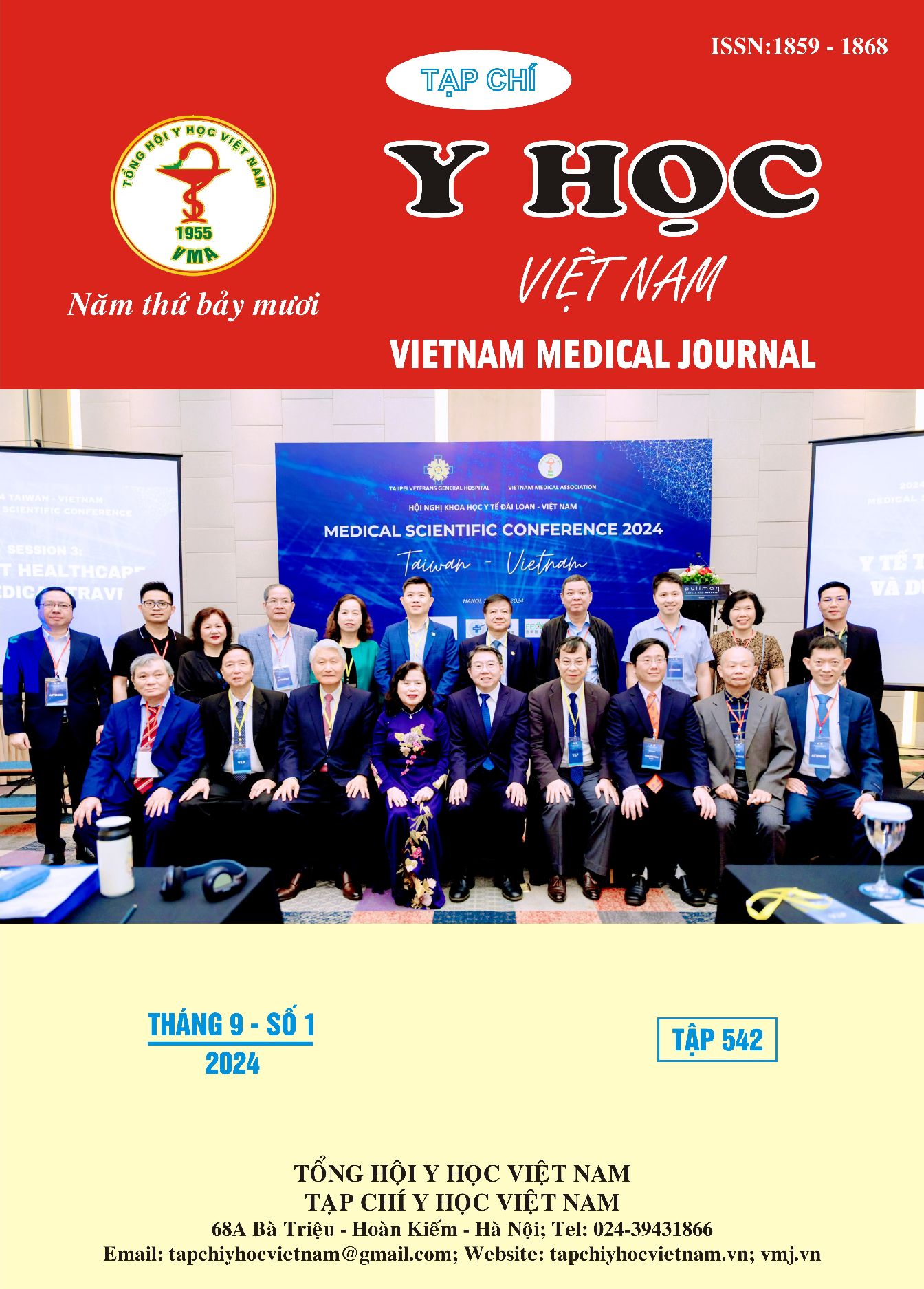KHẢO SÁT TÂM LÝ CỦA BỆNH NHÂN ĐƯỢC CHỈ ĐỊNH PHẪU THUẬT TẠI BỆNH VIỆN ĐA KHOA TỈNH KIÊN GIANG NĂM 2024
Nội dung chính của bài viết
Tóm tắt
Đặt vấn đề: Khi có chỉ định phẫu thuật, tâm lý của bệnh nhân thường không ổn định. Tình trạng này không chỉ ảnh hưởng đến quá trình chuẩn bị và phẫu thuật mà còn tác động đến quá trình phục hồi sau phẫu thuật. Do đó, việc đánh giá mức độ tâm lý của bệnh nhân khi được chỉ định phẫu thuật và nguyên nhân cụ thể trên từng bệnh nhân là vô cùng quan trọng nhằm có những biện pháp can thiệp phù hợp, từ đó xây dựng kế hoạch điều trị và hỗ trợ bệnh nhân hiệu quả hơn. Thang đo DASS - 21 (Depression Anxiety Stress Scales-21) cho phép đánh giá tâm lý của bệnh nhân với 3 mức độ: lo âu, căng thẳng và stress đã được phát triển và sử dụng rộng rãi trong các nghiên cứu về tâm lý và sức khỏe. Mục tiêu: Nghiên cứu nhằm đánh giá tình trạng tâm lý của bệnh nhân được chỉ định phẫu thuật tại Bệnh viện Đa khoa tỉnh Kiên Giang trong năm 2024 bằng cách sử dụng thang đo DASS - 21. Đối tượng và phương pháp nghiên cứu: Nghiên cứu mô tả cắt ngang trên 230 bệnh nhân có tâm lý không ổn định tại khoa Phẫu thuật – Gây mê hồi sức, Bệnh viện Đa khoa tỉnh Kiên Giang. Kết quả: Tỷ lệ bệnh có tâm lý lo âu và căng thẳng chiếm tỷ lệ cao, lần lượt là 44,8% và 41.7%. Năm nhóm nguyên nhân chính được xác định gồm: lo ngại về biến chứng, chi phí phẫu thuật, ảnh hưởng đến cuộc sống, rủi ro trong phẫu thuật, thiếu sự quan tâm và hỗ trợ. Kết quả này cho thấy sự khác biệt có ý nghĩ thống kê với p < 0.05. Kết luận: Kết quả nghiên cứu cho thấy tầm quan trọng của việc xây dựng kế hoạch hỗ trợ cũng như kế hoạch điều trị tâm lý cho bệnh nhân khi được chỉ định phẫu thuật, nhằm giảm thiểu những ảnh hưởng không đáng có do tâm lý không ổn định của bệnh nhân khi được chỉ định phẫu thuật.
Chi tiết bài viết
Từ khóa
nguyên nhân, tâm lý, DASS - 21.
Tài liệu tham khảo
2. Minh Phạm Quang, Phương Vũ Hoàng, Linh Nguyễn Thị. Khảo sát tình trạng lo âu, Stress trước phẫu thuật ở bệnh nhân mổ phiên tại Khoa Chấn thương chỉnh hình và Y học thể thao Bệnh viện Đại học Y Hà Nội. 2020.
3. Akins Paul T, Harris Jessica, Alvarez Julie L, Chen Yuexin, Paxton Elizabeth W, Bernbeck Johannes, et al. Risk factors associated with 30-day readmissions after instrumented spine surgery in 14,939 patients: 30-day readmissions after instrumented spine surgery. Spine. 2015;40(13):1022-32.
4. Andrási Terézia B, Schellenberg Celine, Vasiloi Alina, Glück Alannah C. Health-related quality of life after minimal-invasive treatment of aortic valve stenosis in the elderly. Journal of Thoracic Disease. 2024;16(4).
5. Breemhaar B, Van den Borne HW. Effects of education and support for surgical patients: the role of perceived control. Patient Education and Counseling. 1991;18(3):199-210.
6. Carter Jamie, Zevin Barry, Lum Paula J. Low barrier buprenorphine treatment for persons experiencing homelessness and injecting heroin in San Francisco. Addiction science & clinical practice. 2019;14:1-9.
7. Chang Chu-Hsiang, Bernard Thomas E, Logan Jennifer. Effects of heat stress on risk perceptions and risk taking. Applied ergonomics. 2017;62:150-7.
8. Chen Wei-Ti, Shiu Chengshi, Yang Joyce P, Chuang Peing, Berg Kristin, Chen Li-Chen, et al. Tobacco, alcohol, drug use, and intimate partner violence among MSM living with HIV. Journal of the Association of Nurses in AIDS Care. 2019;30(6):610-8.
9. Costa Filho Antônio Macêdo, Mambrini Juliana Vaz de Melo, Malta Deborah Carvalho, Lima-Costa Maria Fernanda, Peixoto Sérgio Viana. Contribution of chronic diseases to the prevalence of disability in basic and instrumental activities of daily living in elderly Brazilians: the National Health Survey (2013). Cadernos de Saúde Pública. 2018;34:e00204016.
10. Finkelstein Amy, Taubman Sarah, Wright Bill, Bernstein Mira, Gruber Jonathan, Newhouse Joseph P, et al. The Oregon health insurance experiment: evidence from the first year. The Quarterly journal of economics. 2012;127(3):1057-106.


